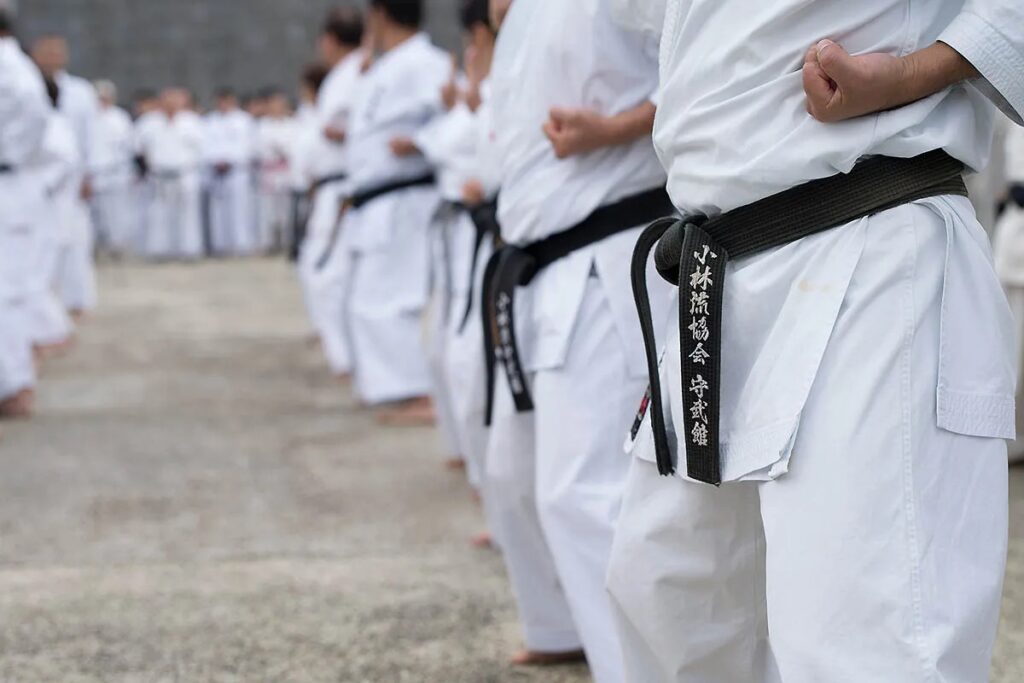IFSF Open Karate Competition Rules (Special semi contact)
- Weight Classes: Competitors are grouped into weight categories to ensure fair matches. Typical weight classes include lightweight, middleweight, and heavyweight divisions.
- Scoring System:
- Points: Strikes to designated target areas (usually head, torso, and sides) score points. Techniques are assessed based on their effectiveness, control, and form.
- Ippon: A clean, decisive technique to a vital area (e.g., head or torso) awarded one full point.
- Waza-ari: A scoring technique with slightly less impact or accuracy, awarded half a point.
- Yuko: A minor point awarded for less decisive techniques.
- Duration of Matches:
- Individual Matches: Typically last 3 minutes for adults, with variations for juniors and seniors. In the professional section, the competition rounds are held in unequal times.
- Team Matches: Duration may vary but commonly 5 minutes per bout.
- Judging Criteria:
- Effective Techniques: Emphasis on clean, controlled strikes with proper form and impact.
- Spirit and Attitude: Demonstrating sportsmanship, respect for opponents, and adherence to karate etiquette (Rei).
- Penalties:
- Warnings: Issued for minor infractions such as stepping out of bounds or excessive contact.
- Warnings with Points Deduction: For more serious offenses like excessive force or unsportsmanlike conduct.
- Disqualification: Given for severe violations or accumulated penalties.
- Attire and Equipment:
- Karate Gi: Traditional white uniform, sometimes with federation-specific patches or markings.
- Protective Gear: Mandatory mouthguards, groin protectors (for males), and optional shin guards or chest protectors depending on competition rules.
- No Jewelry: Competitors must remove all jewelry and wear only approved equipment.
- Refereeing and Officials:
- Matches are officiated by a chief referee and assistant referees, responsible for scoring techniques, enforcing rules, and ensuring fair play.
- Kata Competition:
- Kata: Solo forms demonstrating sequences of karate techniques. Judged on accuracy, speed, power, and presentation.
- Scoring: Judges award points based on technical performance, fluency, and adherence to kata principles.
- Medals and Awards:
- Winners are awarded medals for first, second, and third place in each weight category and division.
- Anti-Doping Measures:
- Competitions may adhere to anti-doping regulations, with random testing to ensure fair play and athlete safety.
- Appeals and Disputes:
- Procedures for filing appeals and resolving disputes are outlined in competition rules, ensuring transparency and fairness.
- Respect for Tradition:
- Emphasis on karate etiquette, including bowing (Rei) before and after matches, respecting opponents, and maintaining discipline throughout the competition.
